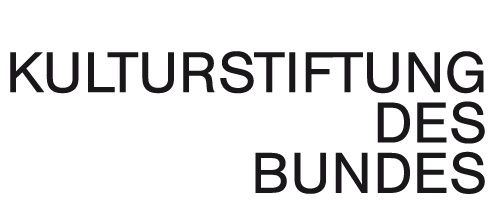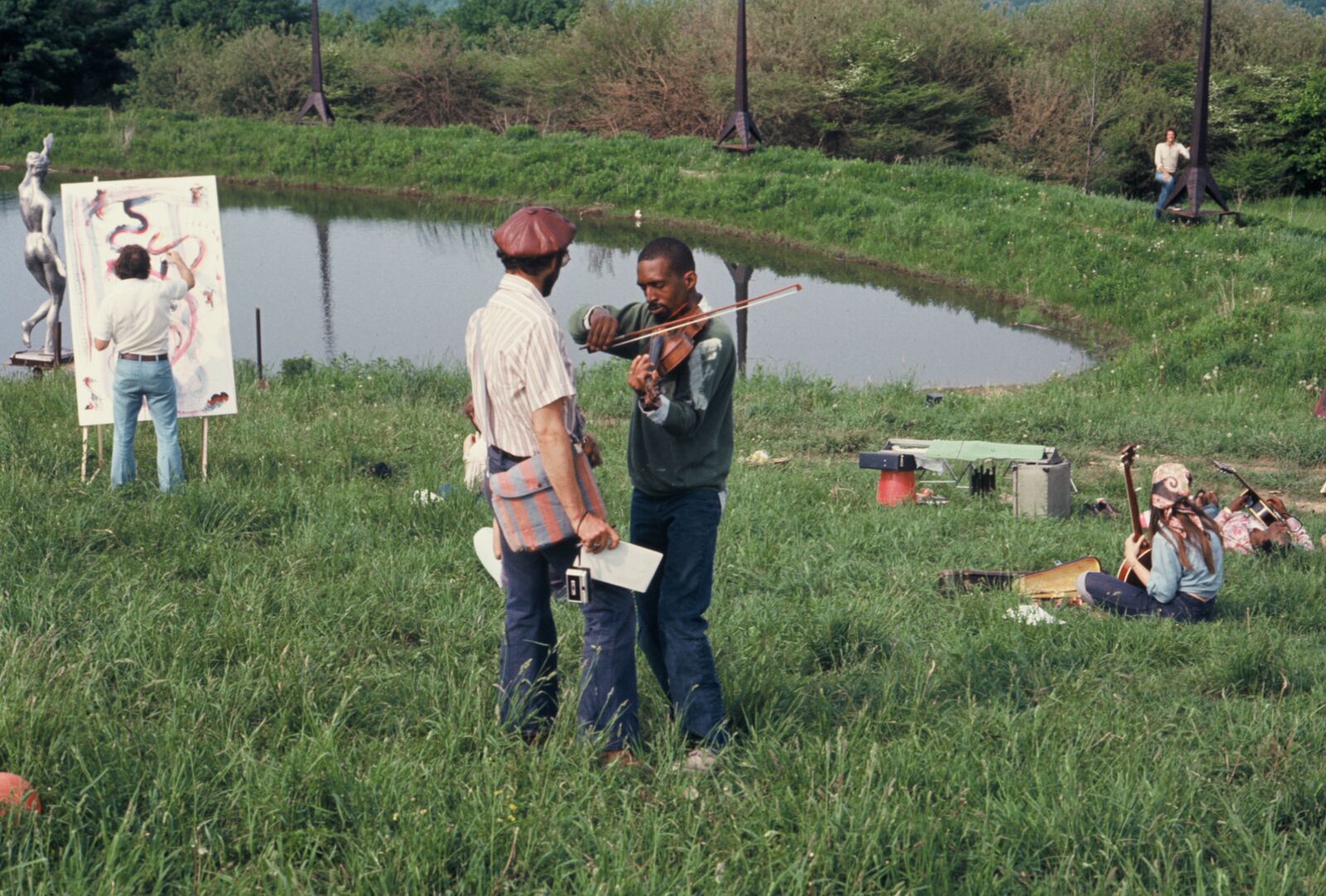Invocations I + II
We Have Delivered Ourselves From The Tonal–Of, with, towards, on Julius Eastman
Symposium 24.03.2018 16:00-24:00
With Sean Griffin, Dustin Hurt, Annika Kahrs, Hassan Khan, Petr Kotik, Josh Kun, Mary Jane Leach, George E. Lewis, Elaine Mitchener, Christine Rusiniak, The Otolith Group (Anjalika Sagar, Kodwo Eshun)
25.03.2018 11:00-19:00
With Janine Armin, Raven Chacon, Rocco Di Pietro, Christine Eyene, Sumanth Gopinath, Sean Griffin, Malak Helmy, Sofia Jernberg, George E Lewis, Jean Cristophe Marti, Elaine Mitchener, Christine Rusiniak, Pungwe (Robert Machiri & Memory Biwa)
Live Streaming
via our Facebook page and via our Youtube channel.
artistic director Bonaventure Soh Bejeng Ndikung
curator Antonia Alampi
curatorial assistance Kelly Krugman
project management Lema Sikod
project assistance Gwen Mitchell
research curators Kamila Metwaly & Lynhan Balatbat-Helbock
communication Anna Jäger & Jörg-Peter Schulze
Within the longterm research, exhibition and performance project on Julius Eastman, produced by SAVVY Contemporary and MaerzMusik – Festival for Time Issues, we cordially invite you to two days of INVOCATIONS with talks, concerts & performances.
WE HAVE DELIVERED OURSELVES FROM THE TONAL – Of, with, towards, on Julius Eastman is an exhibition, and a program of performances, concerts and lectures that deliberate around concepts beyond the predominantly Western musicological format of the tonal or harmonic. The project looks at the work of the African American composer, musician and performer beyond the framework of what is today understood as minimalist music, within a larger, always gross and ever-growing understanding of it—i.e. conceptually and geo-contextually. Together with musicians, visual artists, researchers and archivers we aim to explore a non-linear genealogy of Eastman’s practice and his cultural, political and social weight, and situate his work within a broader rhizomatic relation of musical epistemologies and practices.
A deep listening of Eastman, and a proper look at his scores, reveal a quest to defy the conventionality of music and strive towards the atonal. It is known that Western classical tradition is based on the tonal. By trying to complicate, deny or expatiate on the notions of the harmonic, tonal hierarchy, the triadic, or even the tonal centre, Eastman’s compositions explore strategies and technologies of attaining the atonal, e.g. through his serial repetitions. One might be tempted to see Eastman in the legacy of Bartok, Schoenberg, Berg and others, but here too, it is worth shifting the geography of minimal tendencies and minimalism in music. It is worth listening and reading Eastman’s music within the scope of what Oluwaseyi Kehinde describes as the application of chromatic forms such as polytonality, atonality, dissonance as the fulcrum in analysing some elements of African music such as melody, harmony, instruments and instrumentation.
Though Eastman should not be reduced to the dichotomy of tonality versus atonality, there is still the need to research how Eastman tries to shed light into tonality, which is deeply embedded in Western civilisation.
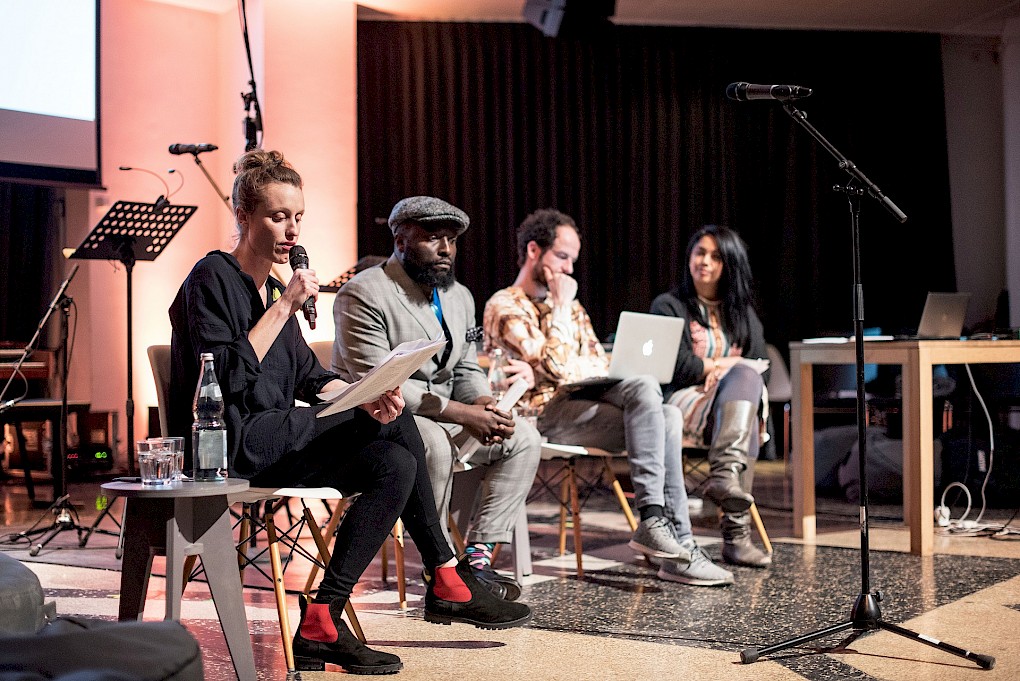
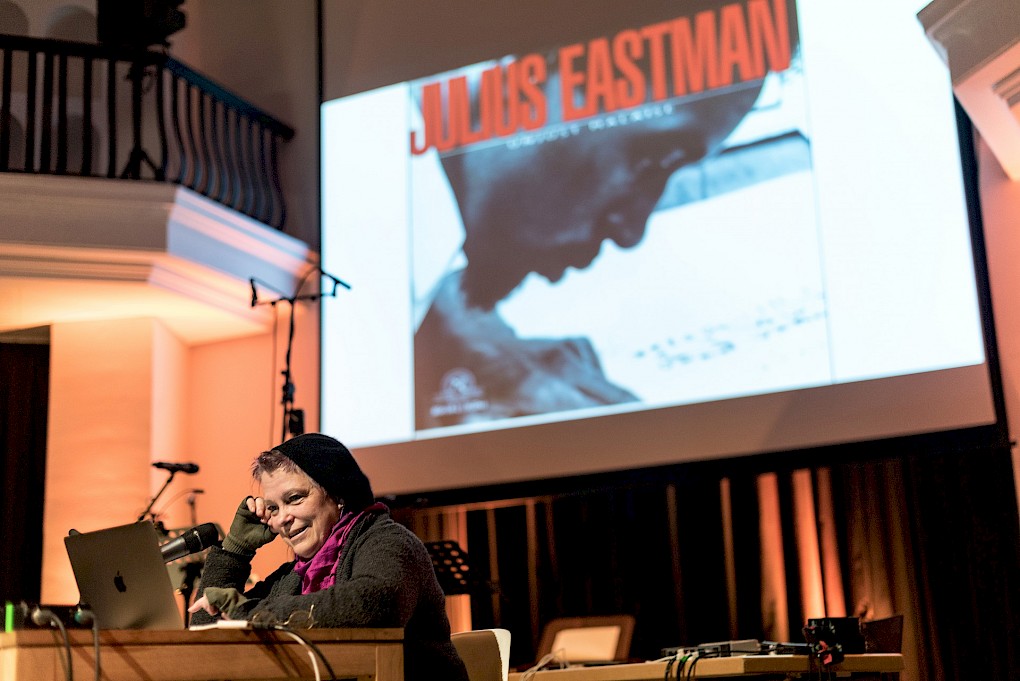
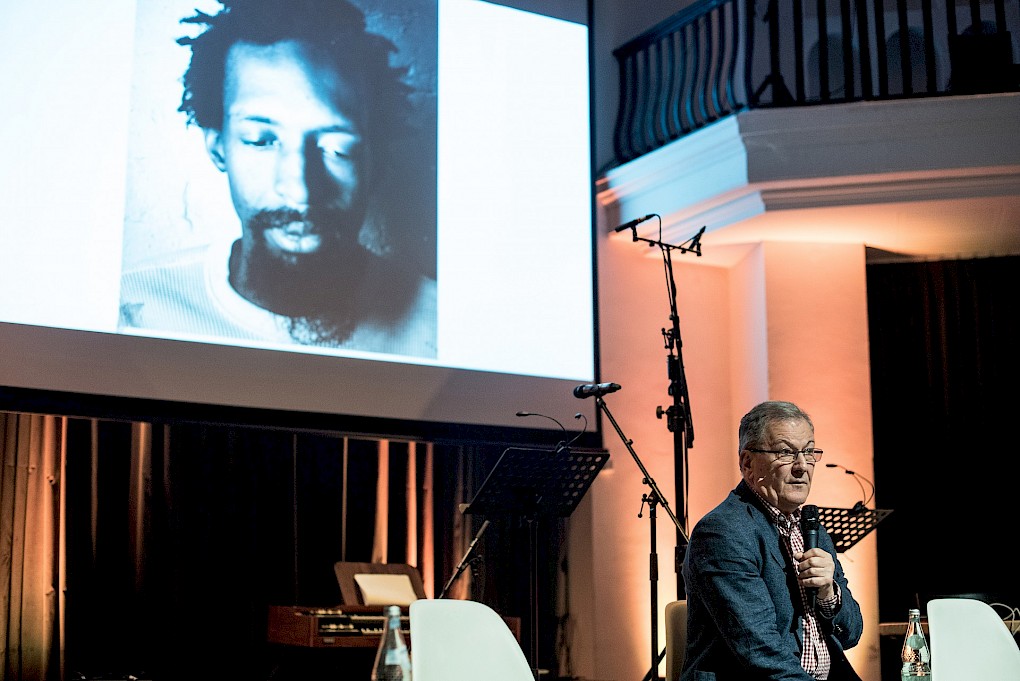
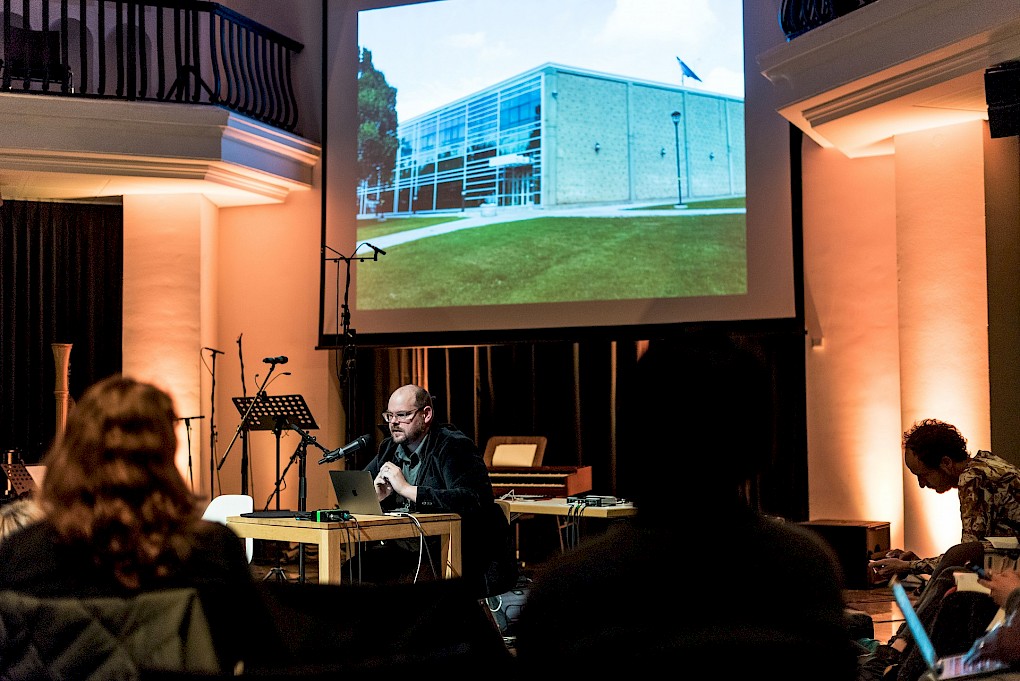
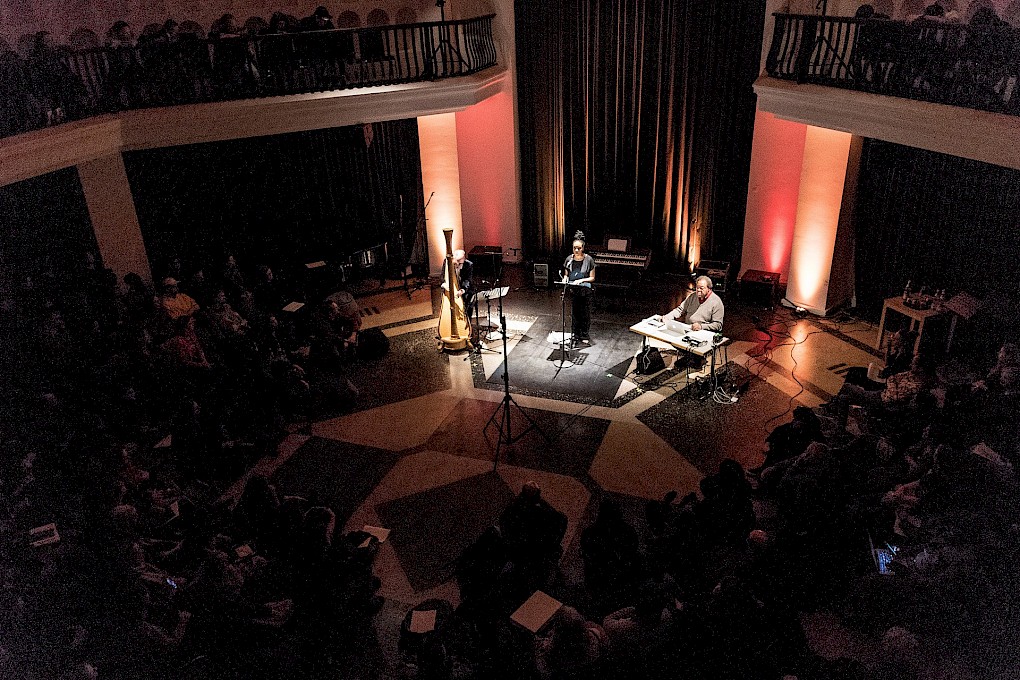
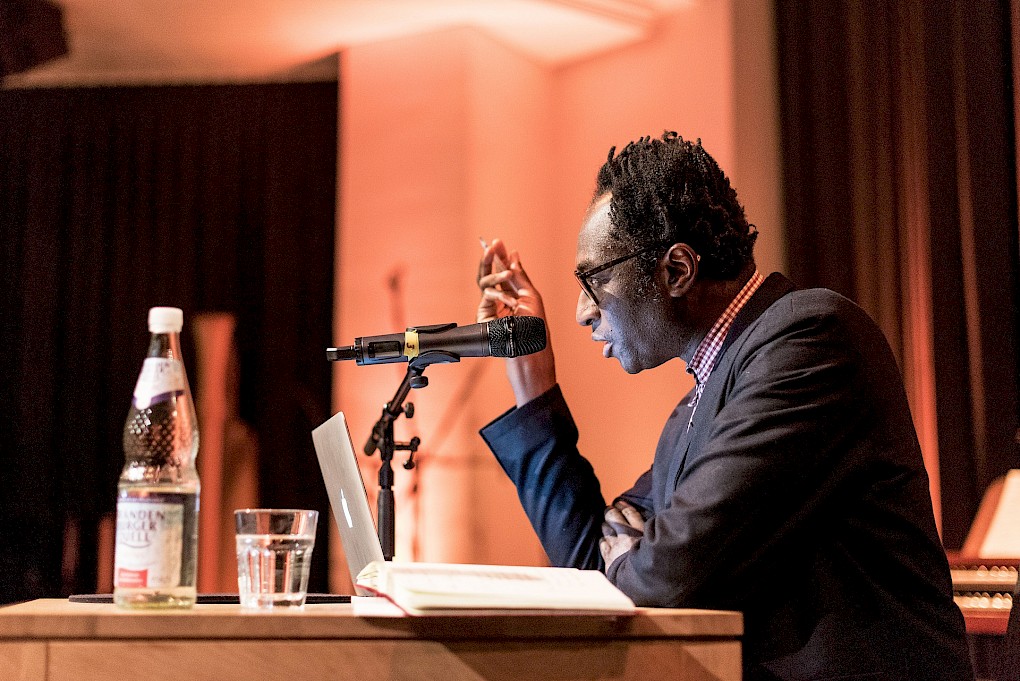
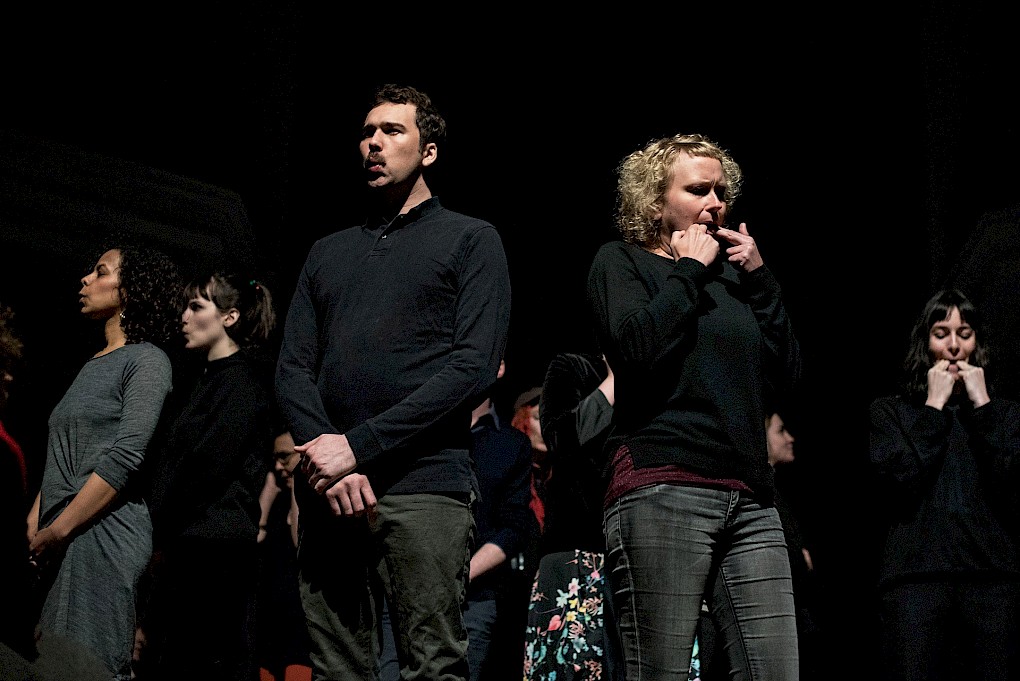
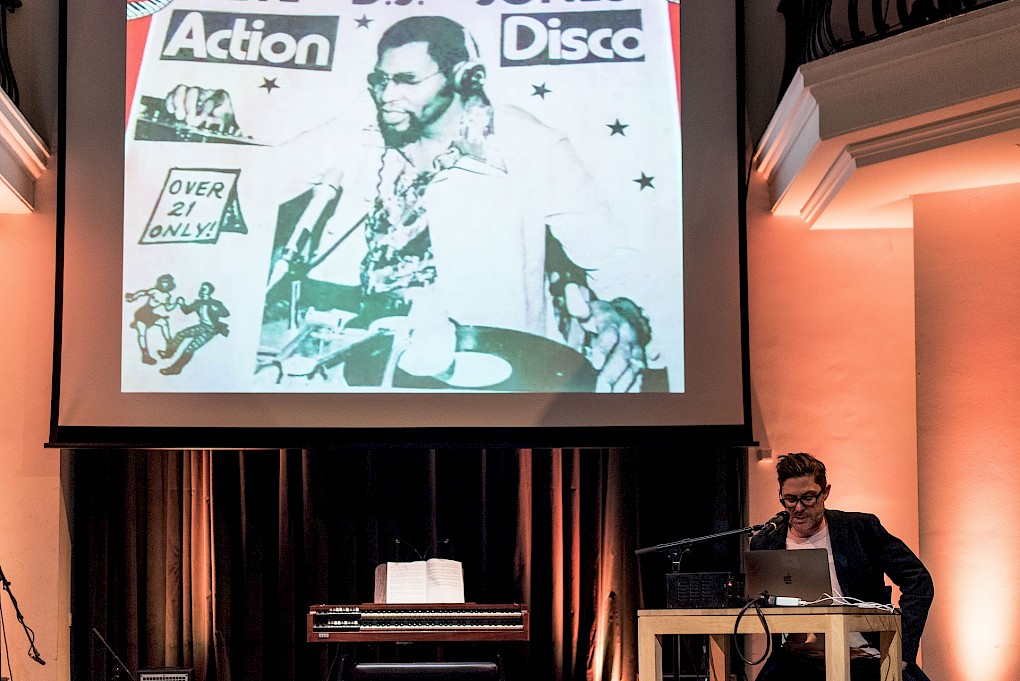
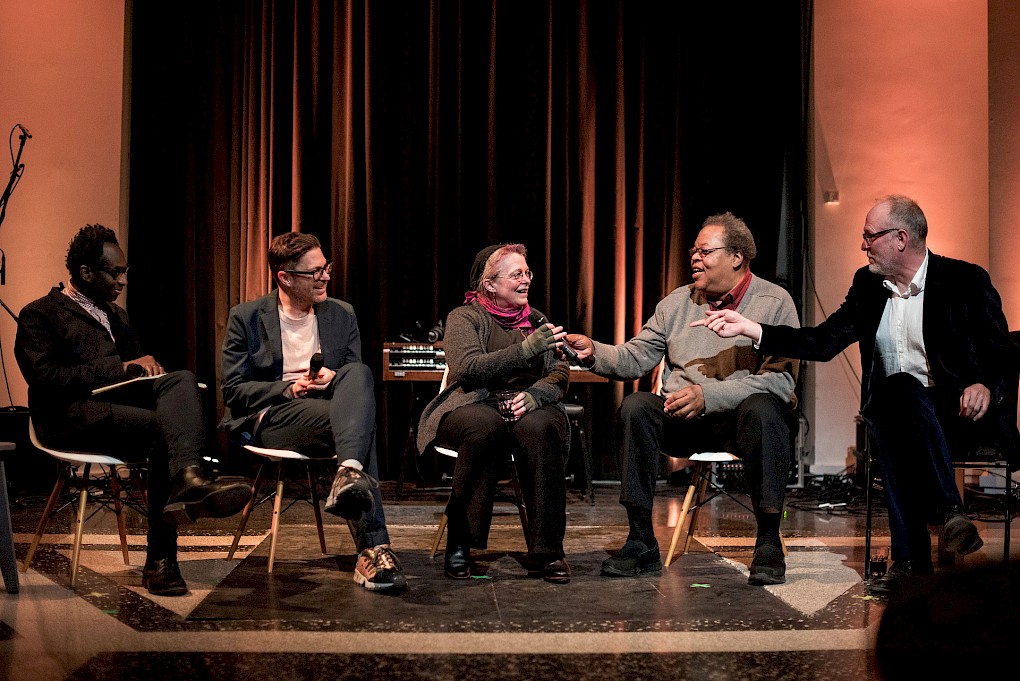
S C H E D U L E
INVOCATIONS I 24.03.2018 16:00–24:00 silent green Kulturquartier
16:00 INTERLUDE
An introduction to the program by the curators Bonaventure Ndikung, Berno Odo Polzer, Antonia Alampi and Lynhan Balatbat-Helbock
Making sense of the growing interest in Julius Eastman´s work. Festivals, publications, exhibitions in the last decade have made space for an almost forgotten Eastman - catapulting him into the minimalist canon. But who is and what are the interests behind these events? Why posthumously? And especially, how is Eastman framed within these contexts, and how can we put the spotlight and the ear on Eastman’s music/work?
16:30–20:00 Music, Myth, Man - Eastman
The man Eastman and his work are epitomes of myths. Eastman the genius enfant terrible, the tragic artist, the provocateur are few of the clichés allocated to Eastman. This panel invites Eastman’s companions, researchers, artists and collaborators to ruminate on his life and music, helping us in unfolding the myths and re-humanising Eastman, as well as reviewing his legacy. After delivering Eastman from the myths, it is crucial to focus on the brilliance and uniqueness of his compositions.
16:30 Mary Jane Leach Living Roles to the Fullest Talk
17:00 Petr Kotik S.E.M. Ensemble and Julius Eastman Talk
17:30 Dustin Hurt (Re)discovering Eastman: Experiences and questions from presenting the life and work of Julius Eastman in the 21st Century Talk
18:00 George E. Lewis, Mary Jane Leach, Christine Rusiniak, Petr Kotik and Dustin Hurt Panel Discussion
18:45 Break
19:00 George E. Lewis Elegy (2018) Performance
World Premiere with Elaine Mitchener (voice), Sean Griffin (harp), George Lewis (electronics) Texts by Julius Eastman and Keorapetse William Kgositsile
19:30 Break
20:00–24:00 Minimal Music – Maximal Politics
A closer look into the intersection of sound and politics, and the politics of sound. In this panel contributors look at the political engagements and implications of artists and their works - labelled minimal - like Julius Eastman’s If You are So Smart Why Ain’t You Rich or his Nigger Series, Cornelius Cardew’s revolution is the main trend in the world today, Steve Reich’s Come Out or Louis Andriessen’s De Staat and many others whose political convictions spilled over into their compositions. Beyond what is termed minimal music, the panel also looks at sound in general and music in particular as a space in which political thoughts are expressed, but also how music, irrespective of genre, influences the politicality of the quotidian, as well as impact subjectivities and spaces.
20:00 Kodwo Eshun Unbinding Eastman Lecture
20:45 Break
21:00 Annika Kahrs the lord loves changes, it’s one of his greatest delusions (2018) Performance: World Premiere
21:30 Josh Kun Border Atonalism Lecture
22:00 The Otolith Group (Anjalika Sagar, Kodwo Eshun), Josh Kun and Sean Griffin Panel Discussion
22:45 Break
23:00 Hassan Khan tainted (2018) A composition for five voices: World Premiere
'tainted' is a 40 minute long musical piece for seven singers performed by an ensemble put together specially for this occasion. Structured as a relentless rhythmically precise organism, 'tainted' is driven by an obsessive yet seductive interest in emotional conditions and their formal translation. Some of the stages it goes through are: yearning, loss, triumph and epiphany. The musical coordinates of the piece are laid down in the form of a readable graphic score but the details are worked out between the musicians and the composer over a month long period.
Hassan Khan´s pieces have been realized thanks to the generous support of Galerie Chantal Crousel.
INVOCATIONS II 25.03.2018 11:00–20:30 silent green Kulturquartier
11:00–15:30 Re-Routing and Re-Rooting Minimal Music. Thinking Organic Music and Complexifying sound genealogies.
Minimal music has been held hostage by concepts and narratives that too often negate the evident sonic influences from the non-West e.g. Ghana or India for Steve Reich or La Monte Young respectively. The history of minimalism framed within and limited to the canon of a West would do injustice to the complex work of composers like Eastman and many others. This panel looks at possibilities of re-rooting and re-routing minimal music and the necessity to deliberate on plural narratives and genealogies of music and minimalism. Panelists will also look at the physical and cognitive routes they shared with Eastman, as well as reflect on how music from beyond the West influences their practices as curators, scholars or artists.
11:00 Sumanth Gopinath „Black Forces“: Julius Eastman Against Minimalism Lecture
12:00 Sean Griffin Buffalo ’70 (2007) Reading
12:30 Christine Eyene Body Vessel – On Black Sonic Heritage, Perception and Translation Lecture
13:30 Christine Rusiniak Julius Eastman: The Buffalo Connection Talk
14:00–14:30 Lunch Break
14:30 Pungwe Regginigger. A play on Eastman’s Wor(l)ds of Divinity (2018) Performance
15:00 Artiste (Malak Helmy with Janine Armin) I want you to Performance
15:45 Break
16:00–20:00 All the Almighties: In Praise of the Rituals and the Transcendentals
“I have been fighting with the lord for a long long long time. And such that at this point, I really take music as secondary. I like love better myself - oh pleasant love - than music.”Julius Eastman, Interview with David Garland, 1984
While we have observed a resurgence of interests in the work of Eastman, rarely have people with an interest in Eastman’s work looked at the complexity and intersectionality of his practice in relation to spirituality, sexuality, class and gender issues. Spirituality played an important role in Eastman’s practice as observed in compositions like Praise God From Whom all Devils Grow (1976), The Holy Presence of Joan d’Arc (1981), Hail Mary (1983/84), Buddha (1984), One God (1985-6), or Our Father (1989), revealing an ‘Auseinadersetzung’ with the spiritual and the transcendental beyond fixed confessions. Too often one is tempted to think Eastman wants to possess and is possessed by some supra-natural forces. These forces are expressed in the music, but also in his talks about sexuality and love.
This section will have Eastman as a point of departure to reflect on the transcendental in music, and on the role of spirituality in minimalist traditions, and the exercising of rituals framed around sex, sexuality and gender discourses and practices.
16:00 Raven Chacon, Christine Eyene, Jean-Christophe Marti, Elaine Mitchener and Sumanth Gopinath Panel discussion
17:45 Break
18:00 Raven Chacon Whistle Quartet Performance
18:30 Elaine Mitchener The Nude Voice [Solo I] Performance
19:00 Jean-Christophe Marti Buddha: An Enigma, and Some Possible Keys Lecture
19:30 Rocco Di Pietro Message from Julius Eastman (2015) and Hail Mary (1984) Performances
20:00 Sofia Jernberg Untitled [Prelude to The Holy Presence of Joan d'Arc] (1981) and Buddha (1983) Performances
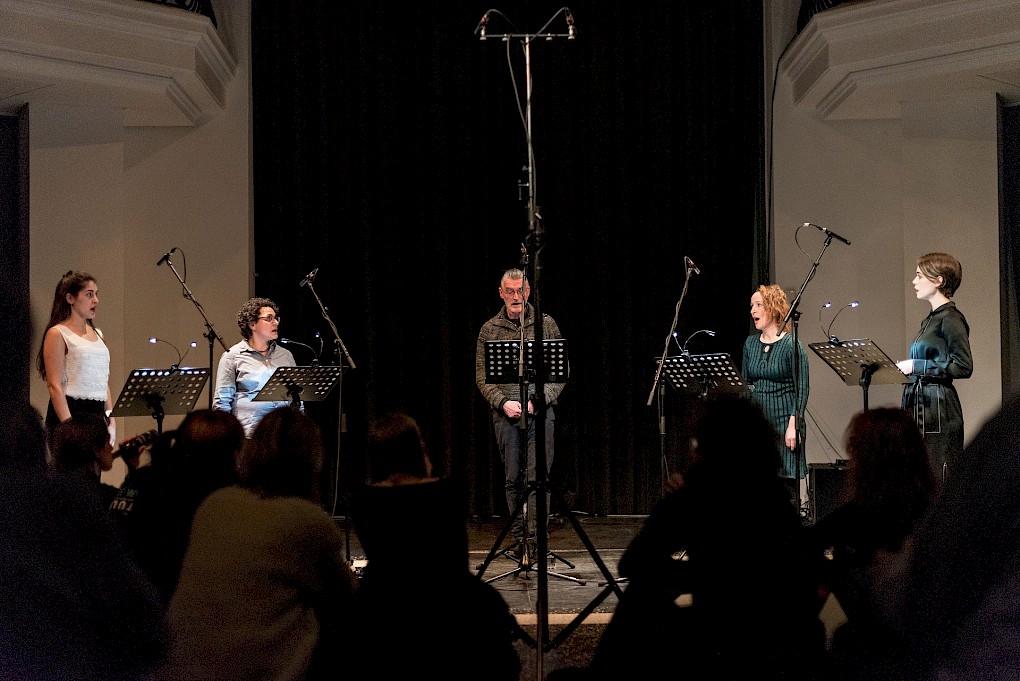
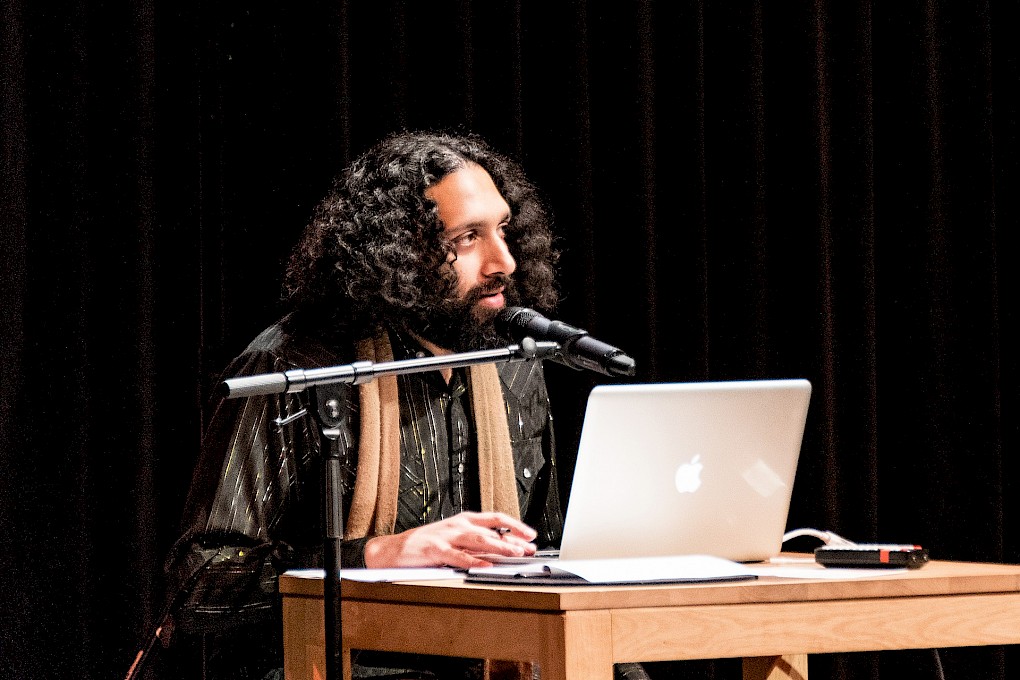
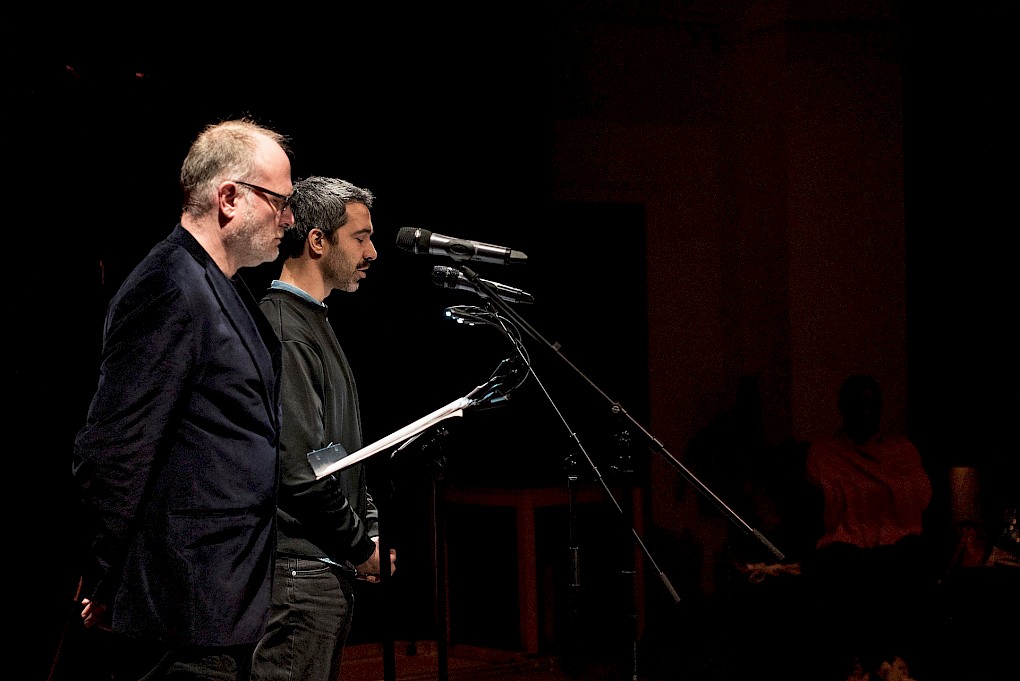
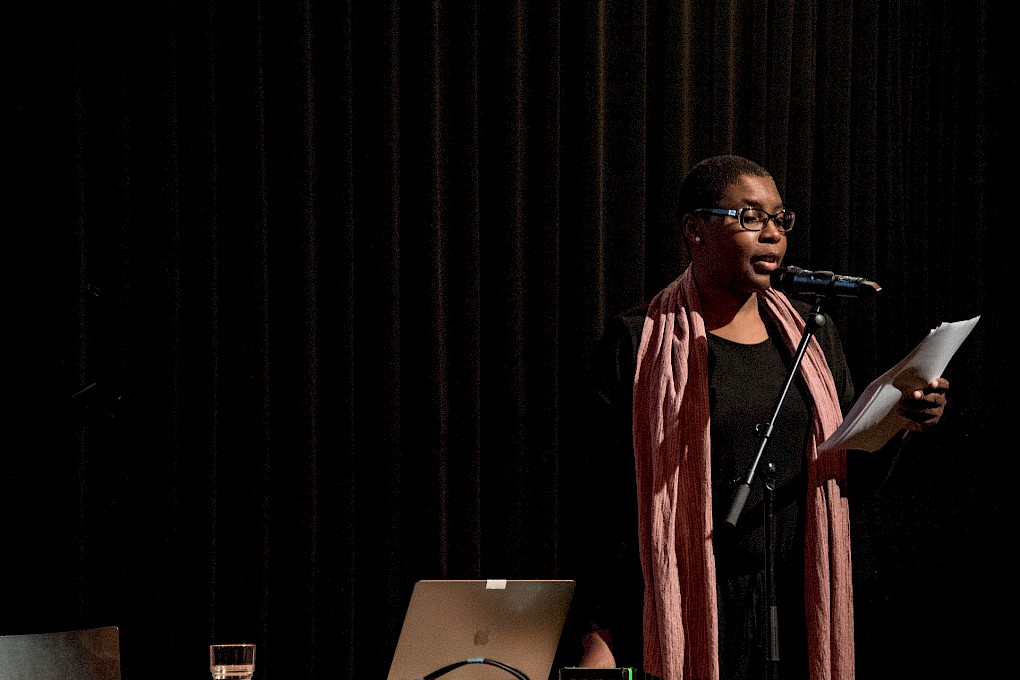
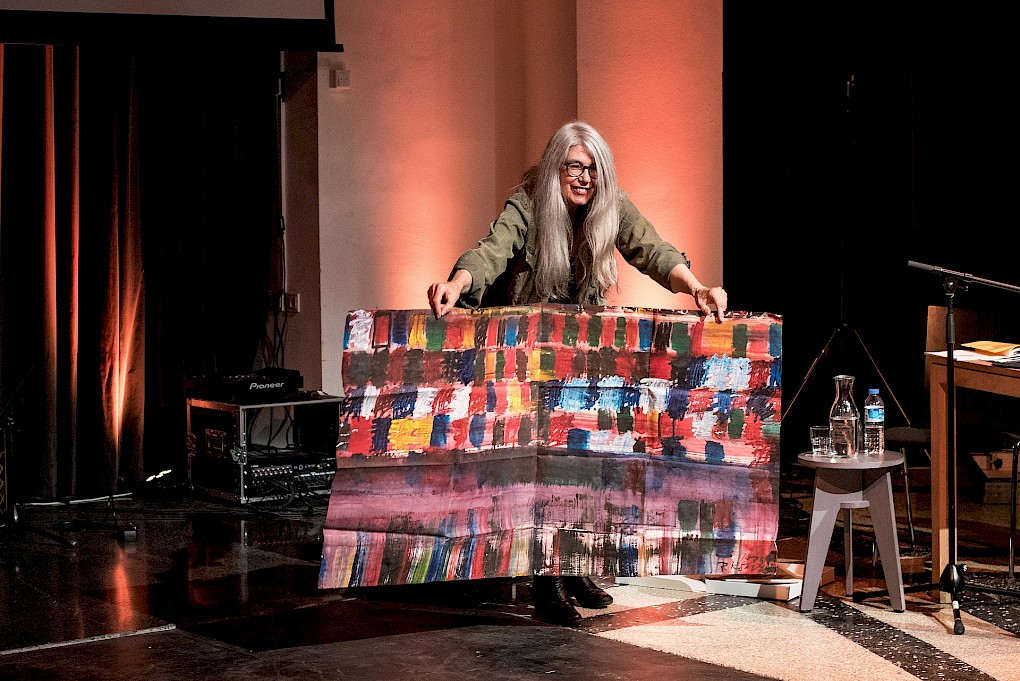
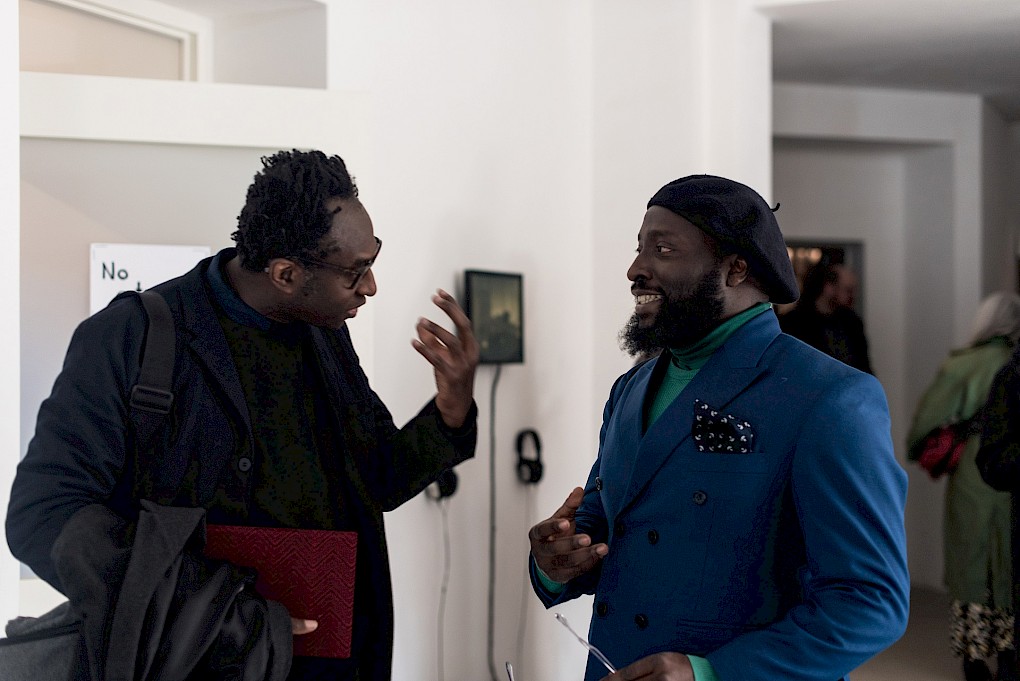
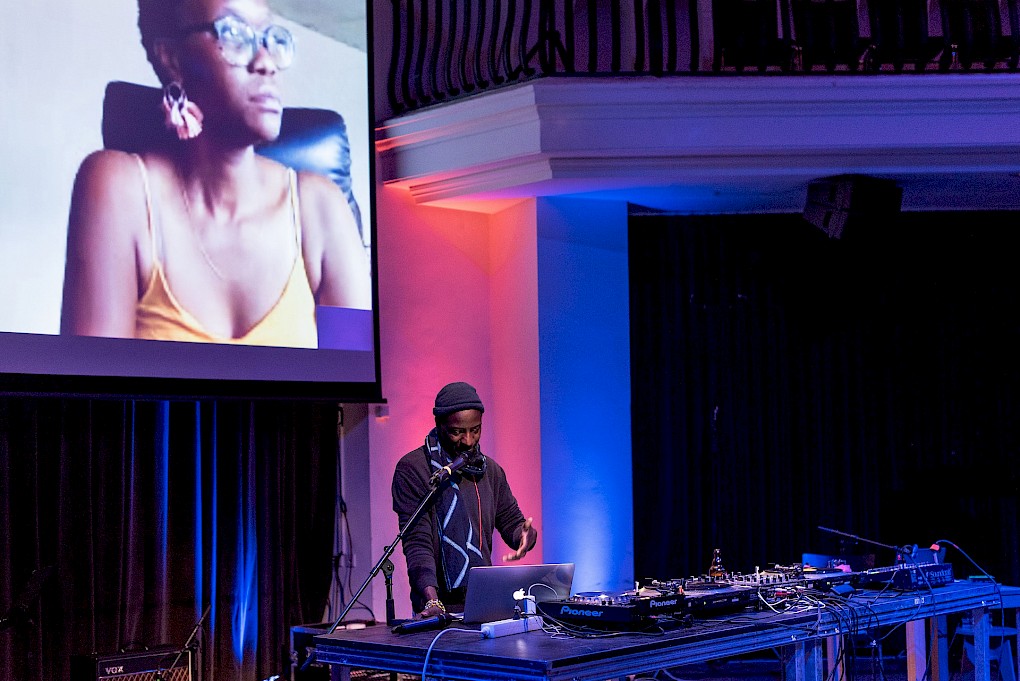
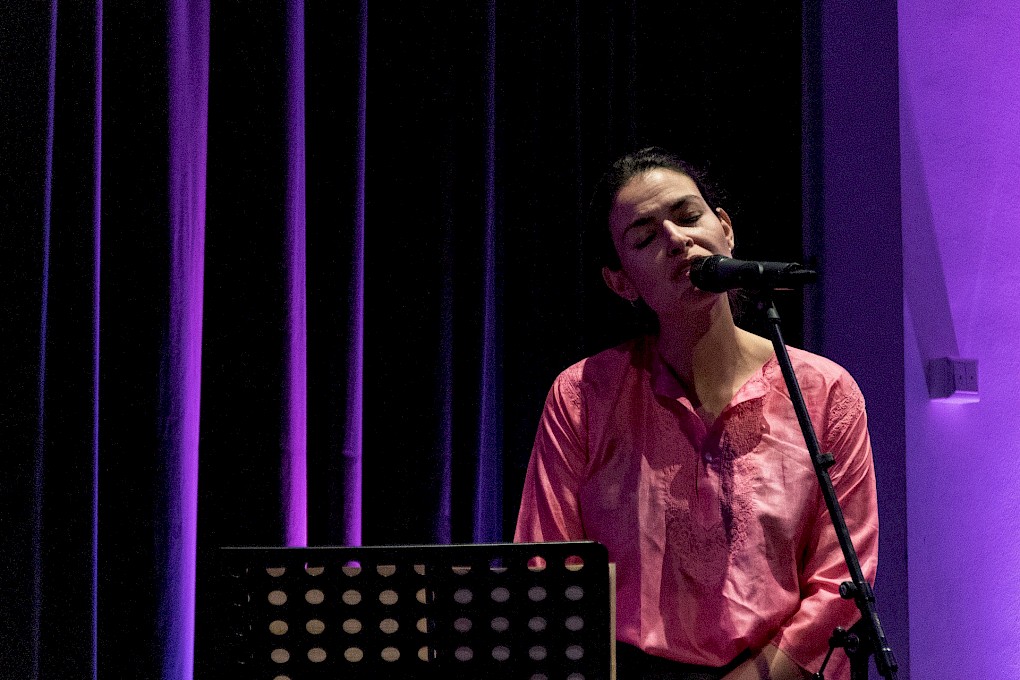
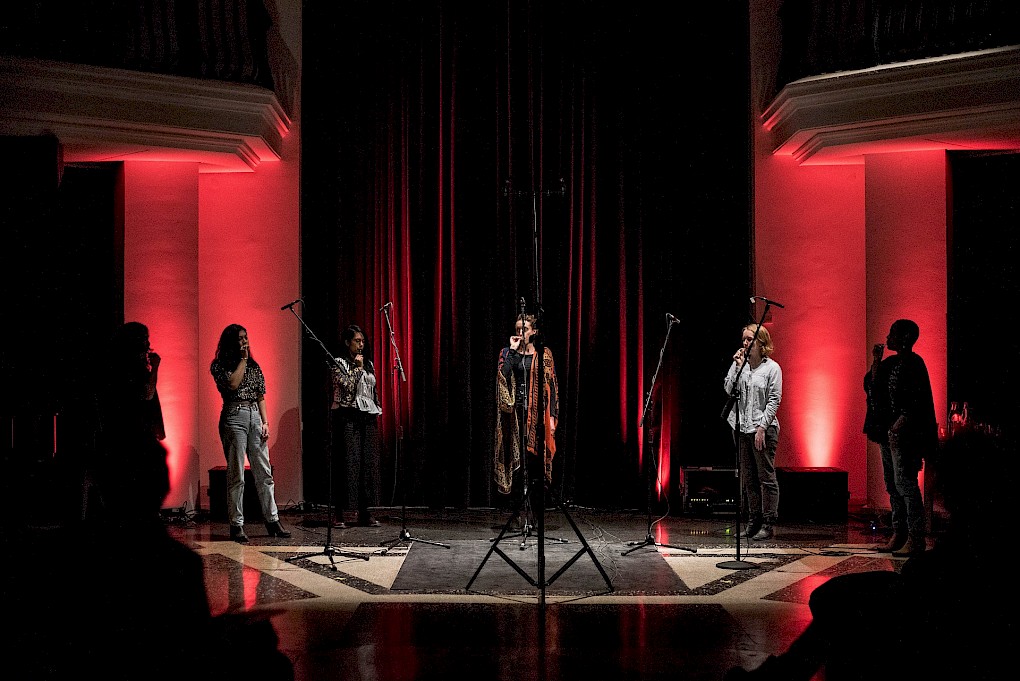
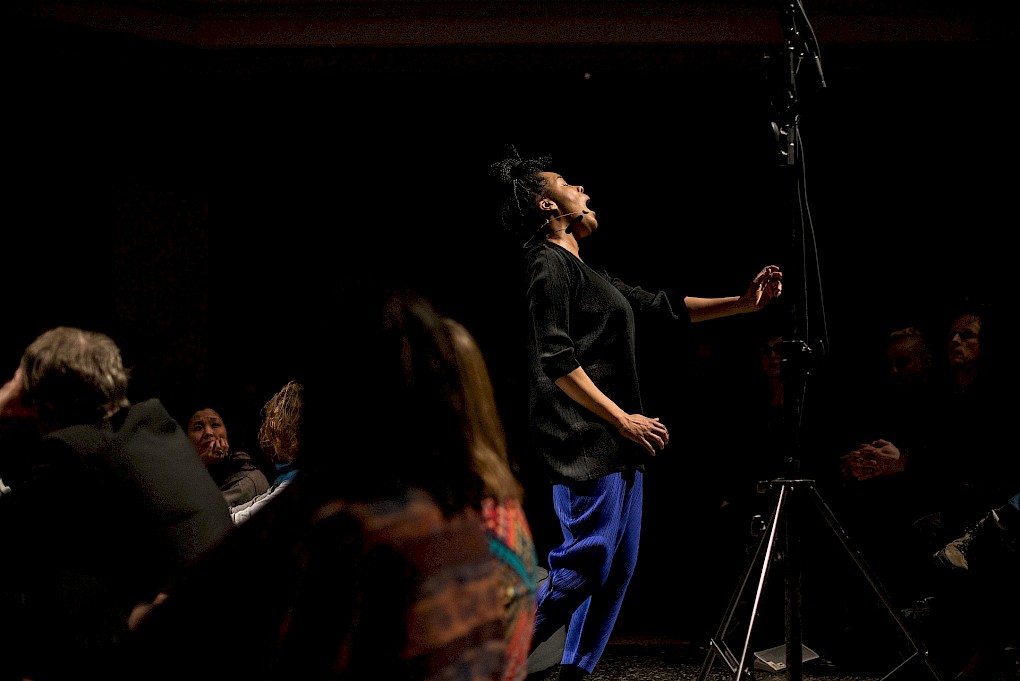
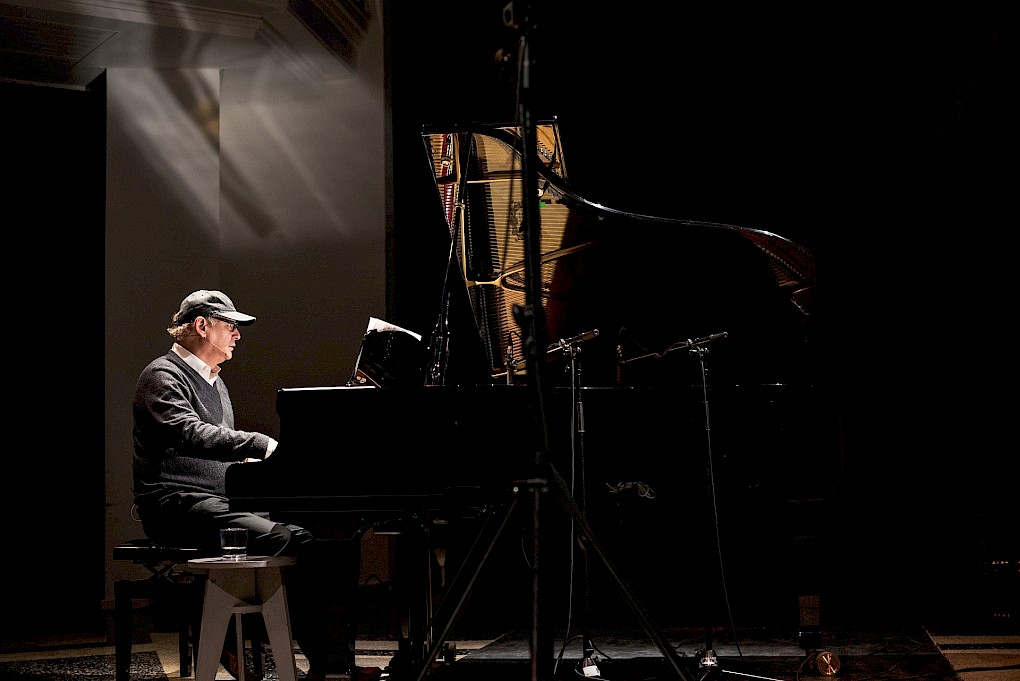
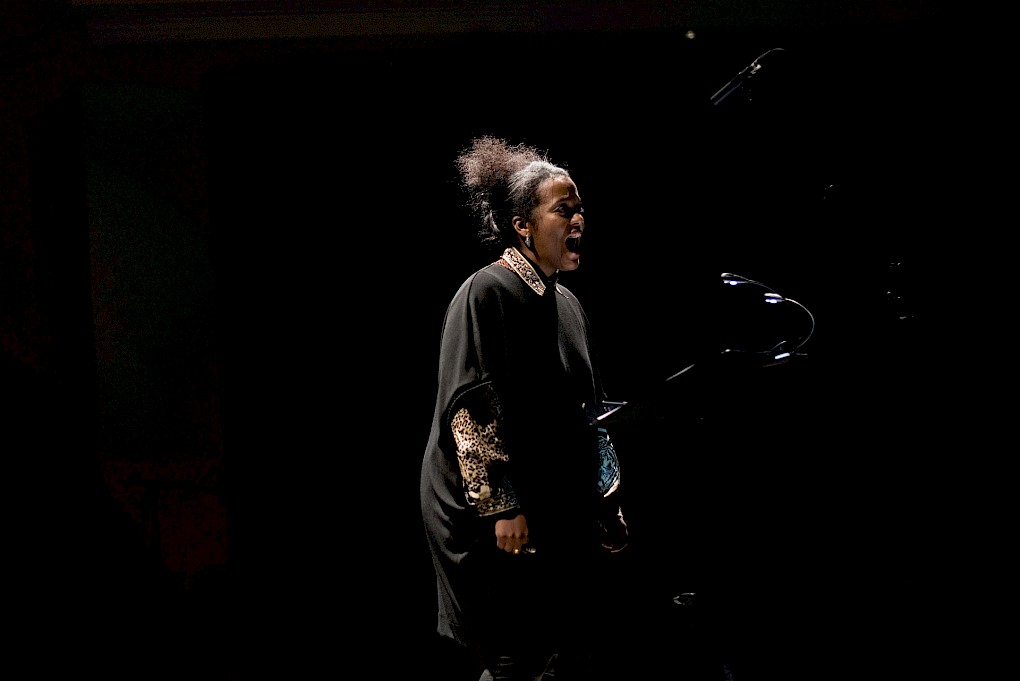
A project conceived by Bonaventure Soh Bejeng Ndikung, Antonia Alampi and Berno Odo Polzer, commissioned and produced by SAVVYContemporary, co-produced by MaerzMusik – Festival for Time Issues.
MaerzMusik – Festival for Time Issues will take place from 16.–25.03.2018 at Haus der Berliner Festspiele.
The project is funded by the German Federal Cultural Foundation.
Hassan Khan´s pieces have been realized thanks to the generous support of Galerie Chantal Carousel.
Photo credit (Teaser images): Chris Rusiniak
